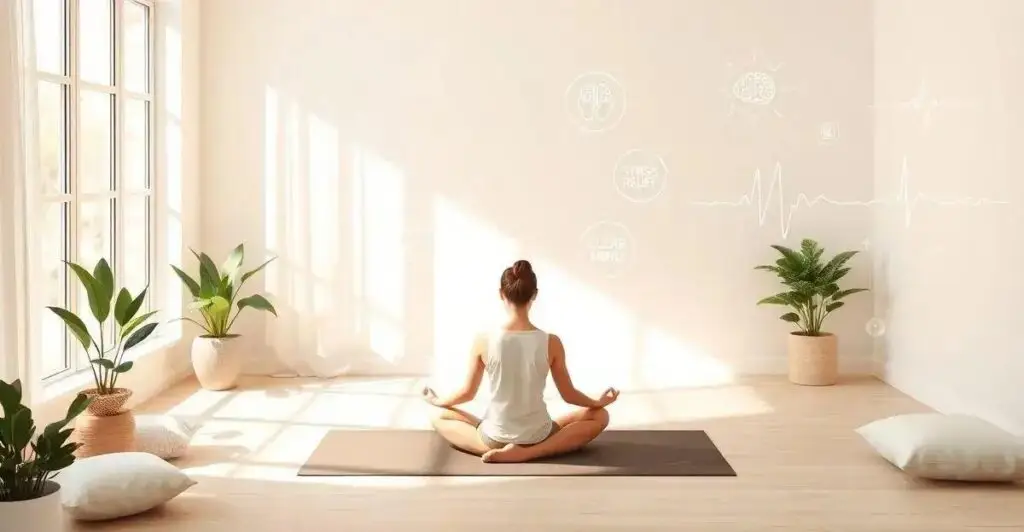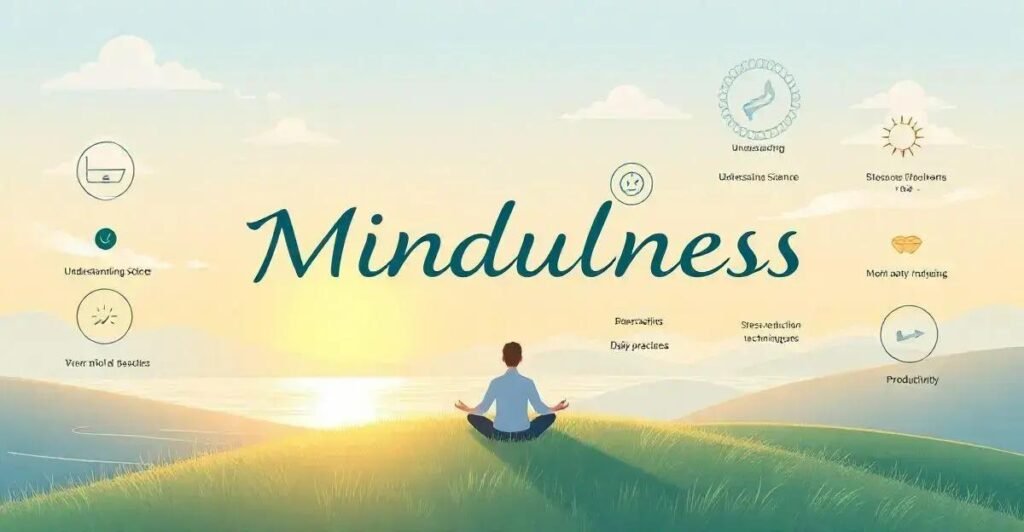Meditation is a powerful tool that can transform your mind and body, helping you to reduce stress, increase focus, and improve overall well-being.
In today’s fast-paced world, it’s easy to get caught up in the hustle and bustle and forget to take a moment to breathe and relax.
But meditation is not just a way to unwind after a long day, it’s a practice that can have a profound impact on your mental and physical health.
Whether you’re a seasoned meditator or just starting out, this guide will walk you through the basics of meditation and provide you with the tools and techniques you need to get started.
So, let’s dive in and explore the world of meditation together!
Table of Contents
Meditation for Beginners: Getting Started
Meditation is a practice that has been around for thousands of years, and has been shown to have numerous physical and mental health benefits.
Getting started with meditation can seem daunting, but with a few simple steps, you can begin to experience the benefits of meditation for yourself.
Find a quiet and comfortable space to meditate, free from distractions. You can use a cushion or chair, whichever feels most supportive for your back.
Close your eyes
and take a few deep breaths, feeling the breath move in and out of your body.
Focus on your breath, noticing the sensation of the air moving in and out of your nostrils. When your mind wanders, gently bring your attention back to your breath.
Start with short sessions, such as 5-10 minutes, and gradually increase as you become more comfortable with the practice.
Remember, the goal of meditation isn’t to achieve a specific state or stop your thoughts completely, but to cultivate awareness and acceptance of the present moment.
The Science Behind Meditation

Meditation has been a subject of interest for scientists and researchers in recent years, with numerous studies exploring its effects on the brain and body.
Neuroimaging techniques such as MRI and EEG have been used to study the changes that occur in the brain during meditation, revealing increased activity in areas responsible for attention, emotion regulation, and memory.
Meditation has also been shown to decrease activity in areas responsible for stress and anxiety, leading to a decrease in symptoms of depression and anxiety disorders.
Studies have also explored the effects of meditation on
gene expression, immune function, and cardiovascular health, with promising results. The scientific community continues to uncover the mechanisms by which meditation produces its benefits, and further research is needed to fully understand its potential applications.
Benefits of Regular Meditation
Regular meditation has been shown to have numerous benefits for both physical and mental health. Reducing stress and anxiety is one of the most significant advantages, as meditation has been proven to decrease the production of stress hormones like cortisol.
Meditation has also been linked to
improved sleep quality
, increased focus and concentration, and enhanced mood.
Additionally, regular meditation has been shown to boost the immune system, reduce chronic pain, and lower blood pressure.
With regular practice, meditation can become a powerful tool for overall well-being, leading to a greater sense of calm, clarity, and purpose in life.
Meditation Techniques and Exercises

Meditation techniques and exercises can vary depending on personal preference, goals, and experience level.
Body scan meditation involves bringing awareness to different parts of the body, releasing tension and promoting relaxation.
Loving-kindness meditation
focuses on cultivating compassion and kindness towards oneself and others.
Guided meditation recordings can also be a helpful tool for beginners, providing a structured and calming experience.
Additionally, mindful movement techniques such as yoga and tai chi can be incorporated into a meditation practice, promoting physical awareness and balance.
It’s essential to experiment with different techniques and exercises to find what works best for you and to make meditation a sustainable and enjoyable part of your daily routine.
Meditation for Stress Relief and Anxiety
Meditation can be a powerful tool for managing stress and anxiety, as it helps to calm the mind and reduce feelings of overwhelm.
Deep breathing exercises can be especially helpful in reducing anxiety, as they slow down the heart rate and promote relaxation.
Mindfulness meditation
can also be effective in reducing stress and anxiety, as it encourages individuals to focus on the present moment and let go of worries about the past or future.
Additionally, meditation can help to increase self-awareness, allowing individuals to better understand their thoughts and emotions and make positive changes to manage stress and anxiety.
By incorporating meditation into your daily routine, you can develop greater resilience and better coping mechanisms for managing stress and anxiety.
Meditation for a Clearer Mind

Meditation can help to clarify the mind by reducing mental chatter and increasing focus.
Visualization techniques can be used to quiet the mind and promote a sense of clarity.
Guided meditation
can also be effective in helping to clear the mind, as it provides a structured and calming experience.
Additionally, meditation can help to increase self-awareness, allowing individuals to better understand their thoughts and emotions and make positive changes to improve mental clarity.
By incorporating meditation into your daily routine, you can develop greater mental clarity, improved focus, and a greater sense of calm and well-being.
FAQ: Frequently Asked Questions about Meditation
What are the benefits of meditation for beginners?
Meditation can help reduce stress and anxiety, improve focus and concentration, and increase self-awareness. It’s also a great way to relax and unwind.
How can I get started with meditation?
Start by finding a quiet and comfortable space to meditate, and try using guided meditation recordings to help you get started. You can also experiment with different meditation techniques and find what works best for you.
What are some common meditation techniques?
Some common meditation techniques include mindfulness meditation, loving-kindness meditation, and body scan meditation. You can also try visualization techniques, such as imagining a peaceful scene or a happy memory.
How can meditation help with stress relief and anxiety?
Meditation can help reduce stress and anxiety by teaching you how to focus on the present moment and let go of worries about the past or future. It can also help increase self-awareness, allowing you to better understand your thoughts and emotions.
What are some tips for making meditation a regular part of my routine?
Try to make meditation a regular part of your daily routine, such as right after waking up or before bed. You can also try incorporating meditation into your daily activities, such as taking a few deep breaths before a meeting or while waiting in line.
What are some common challenges people face when starting a meditation practice?
Some common challenges people face when starting a meditation practice include difficulty quieting the mind, feelings of restlessness or discomfort, and difficulty sticking to a regular practice. However, with patience and consistency, these challenges can be overcome.




Pingback: Beginner's Guide to Mindfulness for Daily Calm